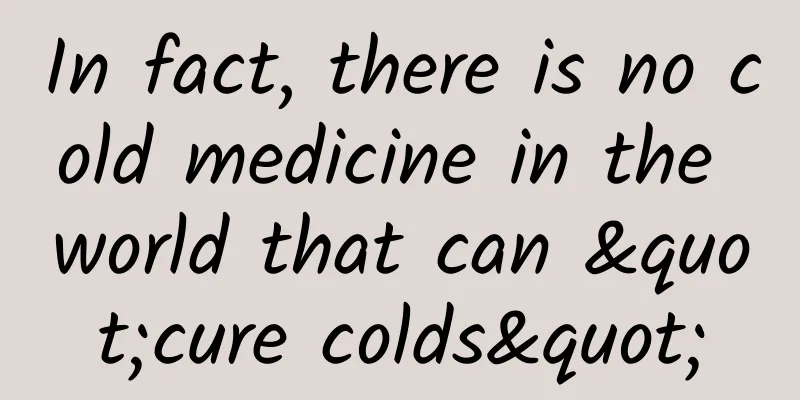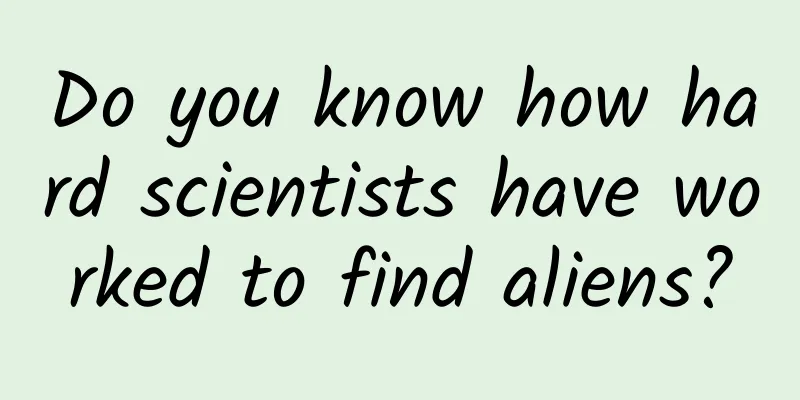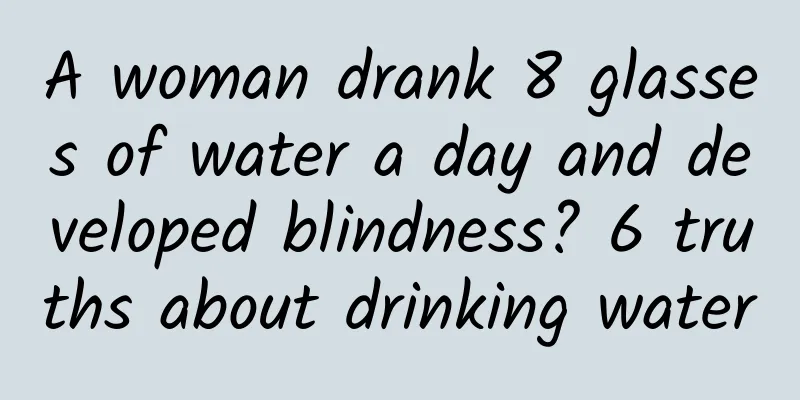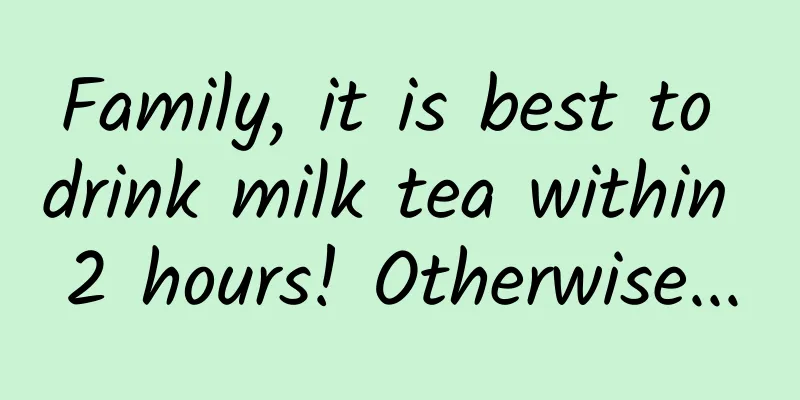In fact, there is no cold medicine in the world that can "cure colds"

|
There is actually no cure for a cold...because even if you take cold medicine, it cannot shorten the course of the disease or cure the cold. The cold we usually talk about refers to the common cold, which is an acute upper respiratory tract infection caused by some common viruses, such as rhinovirus, adenovirus, and respiratory syncytial virus. The common cold mainly manifests as nasopharyngeal symptoms. At the beginning, there may be a mild sore throat or runny nose, and the nasal discharge is more abundant and thin in the first 2-3 days. If a cough occurs, it usually appears on the 4th to 5th day, and it is mostly a dry cough. Generally, there is no fever and systemic symptoms, or only a low fever. The cold is a self-limiting disease that can relieve itself and dissipate on its own. For healthy normal people, even without taking medicine, the common cold will heal within 7-10 days. 01 Since colds can heal themselves So why are there still cold medicines? Four words to sum it up: relieve symptoms! Cold medicine is mainly symptomatic, that is, it treats different symptoms such as cough, nasal congestion, runny nose, etc. Colds generally do not require antiviral treatment. The main treatment is symptomatic treatment, rest, smoking cessation, drinking plenty of water, and prevention and treatment of secondary bacterial infections. If you don't feel particularly uncomfortable when you have a cold and are in good health, you can rest more, drink plenty of water, and wait patiently for the symptoms to subside. If the symptoms are severe and affect your daily life or work, it is recommended to use medication to relieve different symptoms such as fever, headache, sore throat, sneezing, runny nose, cough, etc., and you can stop taking the medication as long as the symptoms disappear. It is recommended to choose the appropriate medication for the symptoms under the guidance of a doctor. Most cold medicines on the market are compound preparations. When choosing to buy, you should pay attention to their ingredients and choose them reasonably according to the symptoms to avoid using the wrong medication or repeated medication. Tuchong Creative Most cold medicines are over-the-counter and can be purchased by yourself, so it is inevitable that drug injuries caused by wrong use of medicines or repeated use of medicines will occur. In order to use cold medicines reasonably, it is necessary to correctly understand the composition of cold medicines and choose medicines reasonably according to their ingredients. Cold medicines are mostly compound preparations, and their ingredients are actually similar, mainly including the following five categories of drugs: 1. Antitussive and expectorant The main cough suppressant in cold medicines is dextromethorphan, which is a central cough suppressant that works by inhibiting the cough center. Cough suppressants may inhibit the cough reflex, preventing a large amount of sputum from being expelled. Therefore, people with a lot of sputum should use them with caution to prevent respiratory failure or even suffocation due to the inability to cough up sputum. Expectorants generally use guaifenesin, which reduces sputum concentration by reflexively increasing the secretion of bronchial glands. 2. Sneezing and runny nose medication Antihistamines such as chlorpheniramine and diphenhydramine are mainly used to relieve allergic symptoms such as runny nose and sneezing caused by colds. 3. Medication to relieve nasal congestion Adrenergic receptor agonists such as pseudoephedrine can help relieve the symptoms of nasal congestion. These drugs can constrict the capillaries in the upper respiratory tract, shrink the swollen nasal mucosa and sinus blood vessels, and reduce nasal edema. 4. Medication to relieve fever and headache The main drugs for relieving fever and headache include acetaminophen, aspirin, ibuprofen, etc. These drugs can inhibit the synthesis of prostaglandins to achieve the effects of reducing fever, relieving headaches, body aches, and joint pains. 5. Antiviral drugs Currently, most cold medicines use amantadine, which can inhibit viral proliferation and reduce the degree of viral infection. Source: Reference [2] 02 Common misunderstandings about cold medicines 1. Do I need to take anti-inflammatory drugs first when I have a cold? Many people take antibiotics when they have a cold, but in fact, more than 90% of cold patients do not need antibiotics. Colds are upper respiratory tract infections caused by viruses, and antibiotics can only kill bacteria but not viruses. Antibiotics can only be used when symptoms such as yellow nasal discharge or coughing up yellow sputum, purulent coating on the pharynx can be seen in physical examinations, and elevated white blood cells can be found in blood tests, and it is clearly confirmed that a bacterial infection has occurred after a cold. 2. Does taking cold medicine make you sleepy? In fact, only the first-generation antihistamines for treating runny nose, such as diphenhydramine and ampheniramine, have sedative and hypnotic effects. If the compound cold medicine you use does not contain this drug ingredient, you will not feel sleepy. For example, the "white and black" cold medicine we often take, the "white" tablet removes the diphenhydramine with sedative and hypnotic effects on the basis of the ingredients of the "black" tablet, so you can take it with confidence. 3. Will “using multiple drugs at the same time” produce faster results? Many cold medicines are compound preparations and contain acetaminophen. Taking large amounts at the same time can cause an overdose of acetaminophen and damage the liver. There is a case report that a graduate student took multiple cold medicines at the same time because he had a heavy final assignment and wanted to cure a cold quickly. As a result, the acetaminophen dosage was too large, causing liver damage and death. 4. Are combination drugs more effective? The principle of cold treatment is symptomatic treatment. If a patient only shows early cold symptoms such as nasal congestion, sneezing, runny nose, and tears, it is sufficient to choose a cold medicine that only contains anti-allergic and vasoconstrictive ingredients. However, many compound medicines contain acetaminophen, which is not suitable in this case. There is no good or bad cold medicine, only whether it is effective for the symptoms. Reasonable medication is to choose the corresponding drug preparation according to your actual condition. Tuchong Creative 03 Do I need to see a doctor for a cold? For most healthy people, the common cold can heal itself and there is no need to see a doctor, but please seek medical attention in the following situations: ▶ 1. Although the common cold is a minor illness, it can still cause complications. It is generally recommended that cold medicines should not be taken continuously for more than 1 week. If the symptoms do not improve or disappear after taking it for 1 week, you should go to the hospital for treatment. ▶ 2. For patients with chronic diseases such as cardiovascular and cerebrovascular diseases, lung diseases, or young children and the elderly with low immunity, it is very necessary to seek medical treatment in time for colds. If not treated in time, it may aggravate the original condition or induce other diseases, such as pneumonia, viral myocarditis, etc. ▶ 3. It is not a common cold but influenza. The common cold has severe nasal symptoms but mild systemic symptoms, while influenza has severe systemic symptoms but mild nasal symptoms. The main manifestations are acute high fever, headache, myalgia, and general discomfort. The body temperature can reach 39-40℃. There may be chills, chills, muscle and joint pain, fatigue, loss of appetite and other systemic symptoms, often accompanied by sore throat, dry cough, nasal congestion, runny nose, discomfort behind the sternum, facial flushing, conjunctival congestion, etc. Although the two look similar, the course of influenza progresses faster. If not treated in time, severe pneumonia, viral myocarditis, etc. may occur, and even life-threatening. Therefore, influenza should be treated with antiviral drugs within 48 hours after the onset of symptoms. References: [1] Xiao Huimin, He Luo. Common ingredients and medication guidance of cold medicines[J]. Guangdong Vocational and Technical Education and Research, 2020(04):203-205. [2] Zou Lihong. Misunderstandings and rational use of common cold medicines[J]. Guangdong Vocational and Technical Education and Research, 2017(04):203-205. [3] Zhang Haiying, Zhang Li, Li Yuzhen. Clinical evaluation and rational use of anti-cold drugs[J]. Chinese Hospital Drug Evaluation and Analysis, 2011, 11(04): 295-298. [4] Fu Xing. Influenza is not a common cold, prevention is necessary [J]. Everyone's Health, 2022(14):29. The article is produced by Science Popularization China-Creation Cultivation Program. Please indicate the source when reprinting. The pictures in this article are from the copyright gallery and are not authorized for reproduction. Author | Denovo Review | Liu Lukuan, Associate Researcher, Dalian Medical University |
<<: What happens to old trees? The oldest tree is over 5,000 years old. Why is it so long-lived?
Recommend
How to quickly optimize your website to the homepage? How to improve SEO efficiency?
Most people have a feeling that website optimizat...
Is product homogeneity serious? 4 dimensions to teach you how to break through successfully!
If you are a company that produces cosmetic conta...
Samsung Electronics' share of the global DRAM market was 41.9% in the first half of 2023, down 1.6% year-on-year.
According to foreign media reports, due to the de...
How to analyze data in product operations?
Today we will talk about the last element of the ...
Xiaomi may lead the privatization or even direct acquisition of Xunlei
On June 30, Forbes website published an article s...
APP Promotion Tips | Make good use of Weibo light application and you can use big tricks without spending any money!
Preface The concept of light applications was pro...
Great Wall Motors is caught in a mass resignation storm, highlighting the difficulties of electrification transformation
On March 12, the news of a large number of Great ...
Douyin operation: Enterprises, you must not do Douyin!
Companies must not do TikTok! In 2019, ByteDance’...
Instructions | What is the difference between the space supplies used by astronauts and those we use?
The astronauts of Shenzhou-15 stayed in the space...
Can applying some glue stop bleeding and heal wounds? This bionic material is amazing...
Produced by: Science Popularization China Author:...
How to configure the live streaming server?
With the rapid development of the Internet, the l...
Hot! Decrypt the most complete APP operation and promotion strategy in history, a must-have manual for experts to grow
In 2015, mobile Internet startup products face mo...
Zhang Yunhui's "Required Course on Yangzhai Shape and Luan" teaches you how to read Feng Shui
This set of "Required Courses on Yang House ...
Kuaigou Taxi and Focus Media have reached a strategic partnership to jointly change urban travel and make life more convenient
On October 24, Kuaigou Taxi and Focus Media joint...
Operational analysis: Lian Coffee’s “online takeaway + social fission”!
Even the fission of coffee makes me panic. Not lo...









